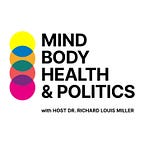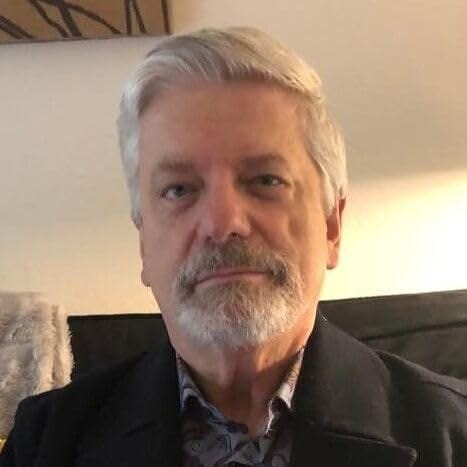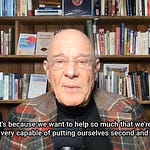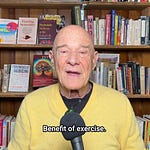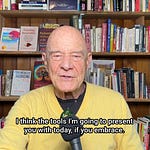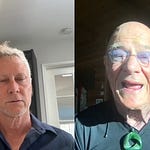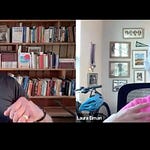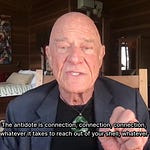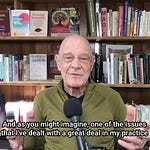Dear Listeners,
This week’s episode sheds light on the radical churches and cults who pioneered psychedelic sacraments, often at great personal risk, in order to expand religious freedoms. However, while many groups fought nobly for the right to practice their faith, some took advantage of members under the guise of spirituality.
My guest was the San Francisco-based writer Mike Marinacci, author of the meticulously researched book Psychedelic Cults and Outlaw Churches, which profiles little-known fringe churches across North America.
Mike himself had life-changing psychedelic experiences in college that sparked his lifelong interest in their cultural and spiritual impact. In the book, he profiles groups who have fought decades-long legal battles to gain religious protections for the use of psychedelic sacraments. For instance, the Native American Church established rights for spiritual peyote use in 1918, even though their use of the cactus plant in rituals extended back for centuries. We owe much to the tenacity of these religious freedom pioneers.
Other more modern churches have emulated their model, like the Peyote Way Church of God. Its founder Immanuel Trujillo offered “psychedelic psychotherapy” with peyote going back to the sixties, even claiming to have been the first to give peyote to Timothy Leary back in 1962. The Brazil-based Santo Daime church won a Supreme Court case allowing their use of ayahuasca as a sacrament. And figures like John Aiken founded the Church of the Awakening in 1960 to provide mainstream Americans legal access to peyote before it was shut down. These groups pushed boundaries to enable spiritual exploration.
Psychedelics are tools that can catalyze profound healing and creativity when used responsibly, but also carry dangers without oversight.
However, fringe churches also demonstrate psychedelics’ dangers when misused without oversight. Certain groups have been accused of manipulating members by distorting spiritual concepts to justify unethical behaviors. For instance, some leaders preach openness while suppressing criticism of issues that could protect participants, like founder misconduct or adverse psychological effects. Without transparency, real problems go unchecked.
While we appreciate these groups’ role in expanding religious freedoms, we must also learn from any missteps to prevent recurrence as access spreads today. If you are interested in exploring these outlaw churches yourself, be sure to thoroughly vet any guide or group you might join.
Have you had any experiences with fringe psychedelic churches, good or bad? Share your story to help us foster responsible use.
Public education and oversight are essential to ensure psychedelics’ responsible use for those who may benefit most.
I hope you’ll join me this week as we examine psychedelic churches’ triumphs and pitfalls on the winding road toward religious liberties.
Golden light,
Dr. Richard Louis Miller
Show Notes
Introduction (0:03 - 3:16)
Why transparency about psychedelic risks is vital to protect participants and advance the field ethically (0:03 - 1:11)
How Marinacci's book explores the history of psychedelic churches (1:11 - 3:16)
Guest's Background and Perspective (3:16 - 8:40)
Why Marinacci was drawn to study psychedelic cultures and churches (3:16 - 5:04)
What specific psychedelics impacted Marinacci and how (5:04 - 8:40)
Overview of Book Research (8:40 - 15:43)
How Marinacci communicated with and researched the organizations (8:40 - 9:36)
Why indigenous use of peyote in the Native American Church laid the groundwork for other churches (9:36 - 12:48)
How non-Native churches emerged in the 1960s seeking religious freedom (12:48 - 15:43)
Comparing Churches and Their Motivations (15:43 - 21:07)
What differentiates fringe churches from recognized religions (15:43 - 17:46)
Why principles and practices vary widely among the churches (17:46 - 19:12)
How legal battles have compelled groups to define religious freedom (19:12 - 21:07)
Issues of Religious Legitimacy and Motivation (21:07 - 29:01)
Why some churches consist of true believers more than legal loopholes (21:07 - 23:05)
How leaders' personalities and beliefs shape the nature of their churches (23:05 - 25:17)
Why backlash often meets those who raise concerns about adverse effects or problems in the community (25:17 - 29:01)
Broader Historic Role of Entheogens in Spiritual Traditions (29:01 - 34:37)
Why anger is an essential emotion for calling out issues, not "bad energy" to transcend (29:01 - 31:11)
How to navigate the tricky line between moral relativism and speaking up about clear harms (31:11 - 33:05)
Why evidence suggests entheogens' roots in humanity's oldest faith traditions (33:05 - 34:37)
Looking Ahead on Legal Fronts (34:37 - 38:22)
How recent court rulings expand religious protections for entheogen use (34:37 - 36:37)
What Marinacci hopes readers take away from the book (36:37 - 38:22)
Societal Shifts in Acceptance (38:22 - 43:18)
Why Marinacci sees growing mainstream acceptance for responsible entheogen use (38:22 - 40:37)
How the book connects to historical quests for mystical insight (40:37 - 43:18)
Obtaining the Book and Closing Thoughts (43:18 - 50:13)
Where to purchase Psychedelic Cults and Outlaw Churches (43:18 - 44:44)
Why few comprehensive works have tackled this topic before (44:44 - 46:48)
How the writing process was engaging and enjoyable overall (46:48 - 50:13)
Marinacci’s Background and Interests (50:13 - 58:55)
Why the intersection of countercultures fascinates the author (50:13 - 51:40)
How to stay updated on the author's current and future projects (51:40 - 53:50)
Appreciation for the conversation on psychedelic churches (53:50 - 56:03)
Enthusiasm for the niche topic of psychedelic churches (56:03 - 58:55)
Links and Resources
Weird California by Mike Marinacci
California Jesus by Mike Marinacci
Peyote Way Church of God in Arizona
The Immortality Key by Brian Muraresku
Seeking Psychedelic Testimonials: The Good, the Bad, and the Ugly.
We are currently looking for first-hand accounts of adverse effects of psychedelics—from ‘bad trips,’ to unwanted physiological complications, to abusive practices by guides, therapists, and shamans.
The interviews from this series will go into a forthcoming book on the topic—perhaps the first book its kind.
Please contact me if you would like to be interviewed.
NOTE: The podcast is always freely available thanks to our paid subscribers. Please share this post to show your support for transparency. The following transcript distills the key points from this show into a condensed form. It is meant as a reference - listen to the full episode for an accurate rendition of the conversation.
Transcript
Introduction and Overview
Dr. Richard Miller: Welcome to Mind Body Health & Politics. I'm your host, Dr. Richard Louis Miller. Our mission is to enhance your physical and emotional well-being and foster community. I emphasize fostering community because, inherently, we're tribal and cooperative beings, thriving when we do things together — from sewing circles, poker games, and sports events, to simply enjoying meals as a group.
However, it's crucial to remain vigilant of a minority with predatory instincts, driven to dominate others, a trait traceable to our earliest ancestors who wielded power through might and later assumed the roles of kings ruling over territories. This dominance persisted for centuries, intertwining with religious institutions to govern through divine right. Despite attempts at democratic governance seen in ancient Greece and Rome, it took our revolution to meaningfully challenge this, transforming us from subjects to citizens.
Yet, history warns us through examples like the pharaohs of Egypt, Caesar's overturn of the Roman Republic, and more recent figures, that there are always those seeking to revert to authoritarian rule. To preserve our liberty, as Thomas Jefferson advised, eternal vigilance is our duty.
Mike's Background and Writing Inspiration
Dr. Richard Miller: Today, I am pleased to welcome Mike Marinacci to discuss his new book, "Psychedelic Cults and Outlaw Churches." But before delving into that, I'd like to explore your earlier work, "Weird California." Mike, could you tell us how you ventured into documenting the bizarre and unusual through this book?
Mike Marinacci: Certainly, Richard. My fascination with the strange and the unusual began in high school when I came across a book titled "Haunted Britain" by Anthony Cox. It beautifully captured the haunted houses and legendary places in England, Wales, and Scotland, and it left me wondering why such a guide for the U.S, particularly California, didn't exist, given our rich history of myth and legend.
Being a native Californian and influenced by my parents who authored travel books about California, I decided to craft one for our state. This led to my self-published "Mysterious California" in the late '80s, garnering attention and setting the stage for "Weird California," a project undertaken with Joe Osterley and Greg Bishop in the early 2000s. The book, a blend of a travel guide and a coffee table book, highlights the oddities of the Golden State, receiving considerable acclaim and becoming somewhat of a bestseller.
My recent interests have pivoted towards comparative religion and unconventional spirituality, leading to a book titled "California Jesus," where I explored Christian sects and evangelists rooted in California. It opened up a largely untouched narrative and was followed by my latest work, "Psychedelic Cults and Outlaw Churches." In this book, I delve into North American religious groups that use entheogens — psychoactive substances — in their rituals, attracting legal issues and controversy. It’s an area that hasn’t been explored much, and I’ve brought these narratives together in one comprehensive study.


